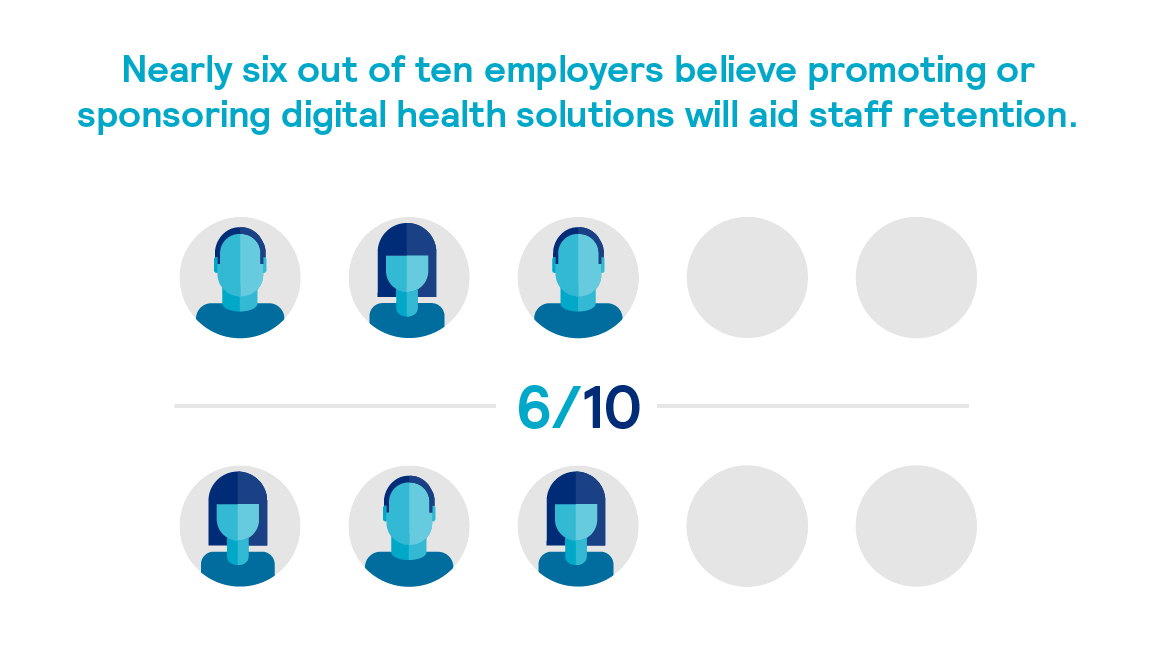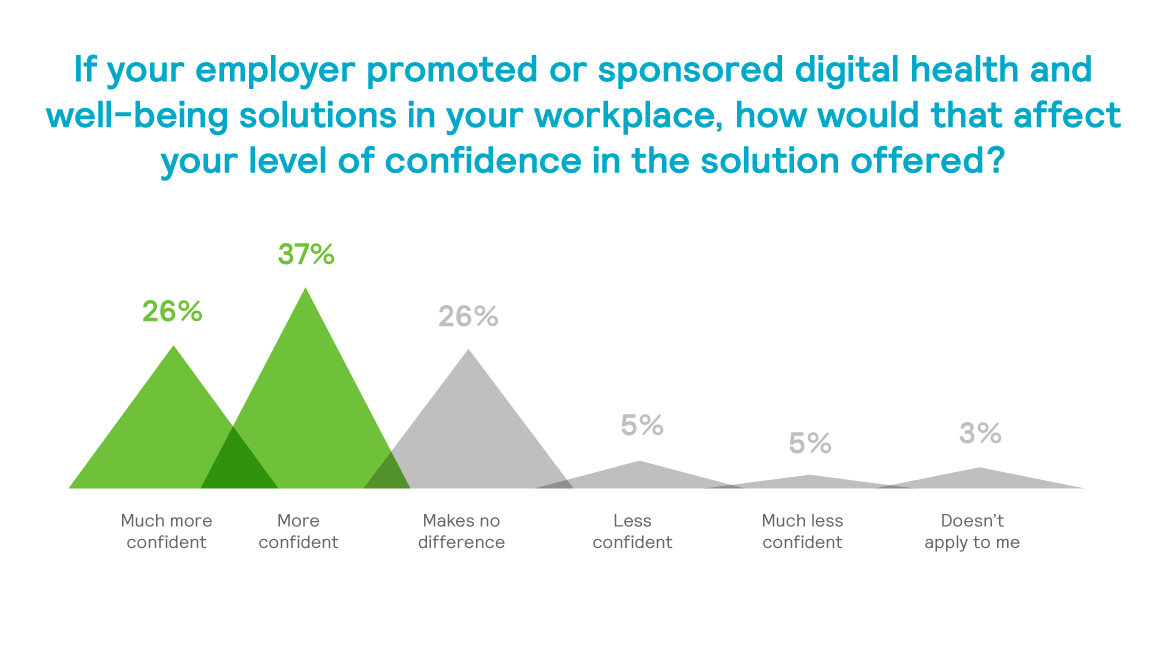Connecting health and tech in the workplace
By hearing firsthand from workers and senior decision makers, Mercer Marsh Benefits, Mercer and Oliver Wyman have identified promising strategies to boost worker engagement and overall health and well-being — and where gaps exist in employers’ understanding of workers’ priorities. Following is a summary of our six key findings.
A Strong Case for Digital Health
More than half of the surveyed senior decision makers say health and well-being investment will be a greater priority for their organizations in the future.
Four Worker Segments to Engage
Understanding the differences among worker segments can help employers design a program of solutions with the greatest value to their populations.
Patient-Centered Solutions Valued
Two-thirds of workers are willing to experiment with digital applications that provide easier or virtual access to healthcare providers and their records.
Desire for a Pro-Health Culture
43% of both workers and employers want a more “pro-health” environment at work but differ on what tools or resources to include to address a wide range of needs.
Trust in Employers High
Despite concerns around data privacy, nearly 75% of workers report having some or a great deal of trust in their employers’ ability to protect personal health info.
Growth vs. Mature Markets Differ
Workers in growth markets are often two times more willing to try digital health solutions than workers in mature markets.
Explore the global findings
The survey is comprehensive in its geographic reach and comprises seven mature and six growth markets across Asia, Latin America, Europe, the US and Canada, including 16,564 workers and 1,300 senior decision makers (100 per market).
The worker study focused on adults in full-time or part-time work, freelancers and gig economy workers; all between the ages of 18-to-64 years. The employer study was aimed at senior business decision makers in commercial organizations of 50 or more workers. At least 50% of senior decision makers are in companies with more than 500 workers, globally.
Insights on employer and worker views of digital health solutions can help employers determine a health and benefits strategy to help meet both their business objectives and worker priorities.


1600x602.jpg.imgix.banner.jpg)





